
THREAD: record trade deficit ignites alarm
LifeLine™ Media threads use our sophisticated algorithms to construct a thread around any topic you want, providing you with a detailed timeline, analysis, and related articles.
News Timeline


US-CHINA TRADE Truce Ignites Hope, But Record Deficit Stings Americans
— The U.S. and China have agreed to a 90-day trade truce, cutting tariffs on each other’s goods. U.S. tariffs on Chinese imports dropped from 145% to 30%. China lowered its own tariffs from 125% down to just 10%. This deal sparked a rally in Asian markets, with Japan’s Nikkei jumping nearly 2%. Car makers like Toyota and Suzuki also saw big gains.
But the good news comes with a warning sign. The U.S. Treasury revealed the trade deficit has hit a record $1.2 trillion. Treasury Secretary Scott Bessent claims “substantial progress” in talks with China but didn’t share many details. Lawmakers and global partners are worried about how this growing deficit could hurt American jobs and businesses.
Western car companies are trying new ways to stay competitive as sales drop in China. Volkswagen is teaming up with Ecarx, a Chinese tech company that builds smart car systems. Mercedes-Benz will use Chinese-made sensors for its vehicles around the world.
Meanwhile, Ford put its financial plans on hold because of uncertainty over President Trump’s tariffs — which could cost them $1.5 billion this year alone. In Japan, regulators plan to give crypto assets legal status as financial products by changing laws next year.
RECORD TRADE Deficit Ignites Alarm Over Weak US-China Deal
— America’s trade deficit has hit a record $1.2 trillion, sparking fresh fears about the country’s financial health. Treasury Secretary Scott Bessent claimed “substantial progress” in talks with China but failed to share any real details about the agreement made in Geneva.
The U.S. wants China to change its economic habits and shrink the $295 billion gap between the two nations. Many hoped this deal would lower tensions, but doubts are growing because no one knows what was actually agreed on.
Republicans are demanding answers and real results, warning that out-of-control deficits put American jobs and factories at risk. The Biden administration now faces heavy pressure to deliver actual solutions instead of empty promises.
Until Washington releases clear terms, Americans have every right to question if their leaders are truly fighting for U.S. interests in these critical talks with China.
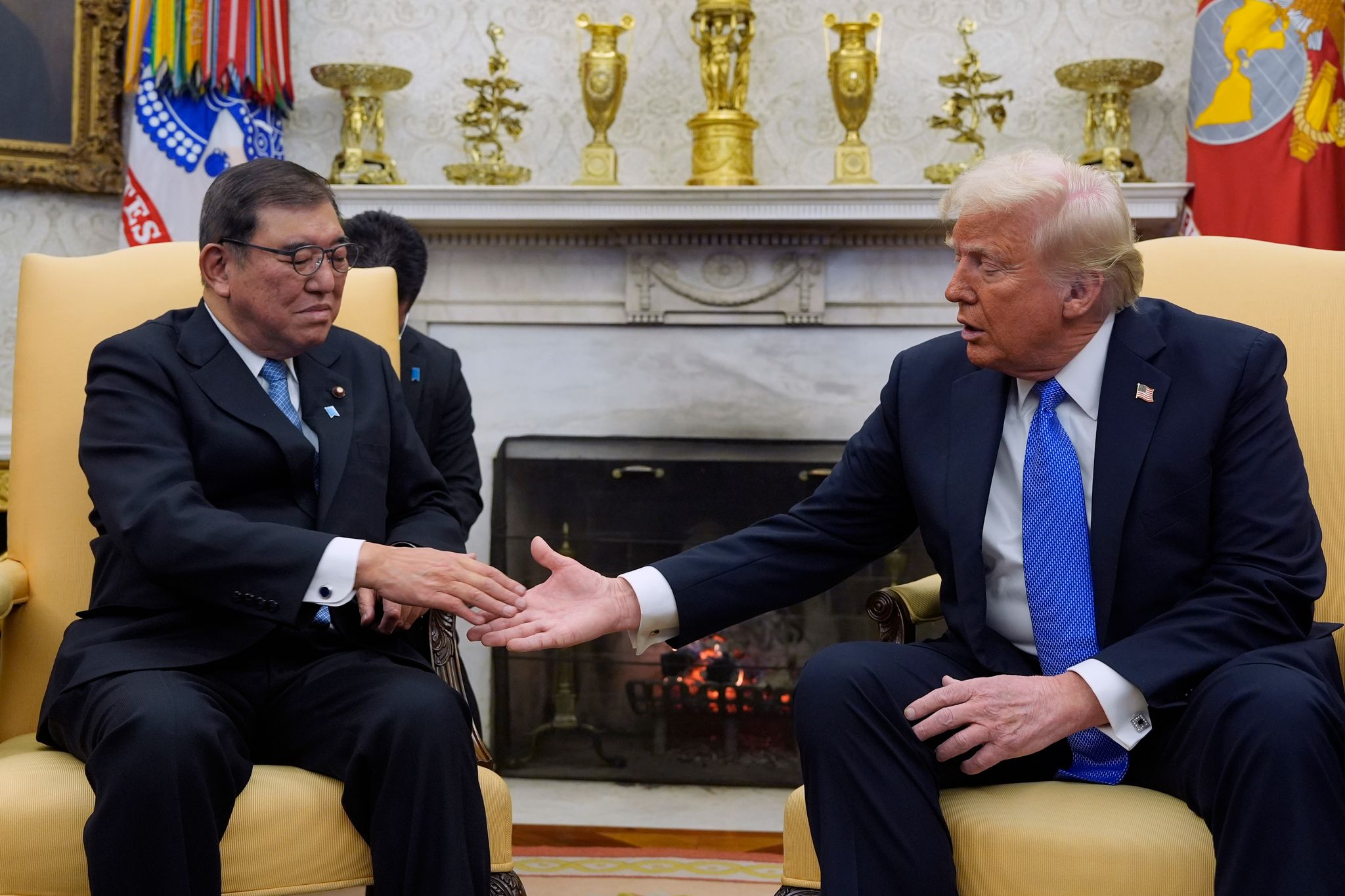
$12 TRILLION TRADE Deficit Shocks America: Urgent Calls for Stronger Policies
— America’s trade deficit just hit a record $1.2 trillion, setting off alarm bells in Washington and around the world. The Treasury says there has been “substantial progress” in recent talks with China, but they aren’t sharing details.
Top U.S. and Chinese officials met in Switzerland to try to ease a tense trade war filled with new tariffs. But this huge deficit shows America is still struggling to balance trade with China and other countries.
This financial milestone is a warning sign for the U.S. economy and our place on the world stage. Lawmakers now face growing pressure to find real answers that protect American jobs and businesses.
Conservatives say it’s time for strong, America-first trade policies. They believe bold action is needed now more than ever to bring back stability and stop foreign competitors from taking advantage of our country.

INDIA’S Trade Demands Spark Fury as First American Pope Stirs Hope
— India is pushing for big tariff cuts on American products. Their goal? Shrink the trade gap with the U.S. from 13 percent to just four percent. If approved, this would remove duties on planes, cars, and medical gear — opening almost all of India’s market to American goods. But U.S. exporters might face new rules in exchange.
In Rome, history was made as Cardinal Robert Francis Prevost became Pope Leo XIV — the first American-born Pope ever. His election comes during a time of global unrest and fresh calls for peace in places like Kashmir.
Old conflicts are still simmering around the world. The Israel-Palestine fight and tensions in Kashmir continue with no major changes today.
These events show our world is facing old problems but also seeing big changes that could shape our future.
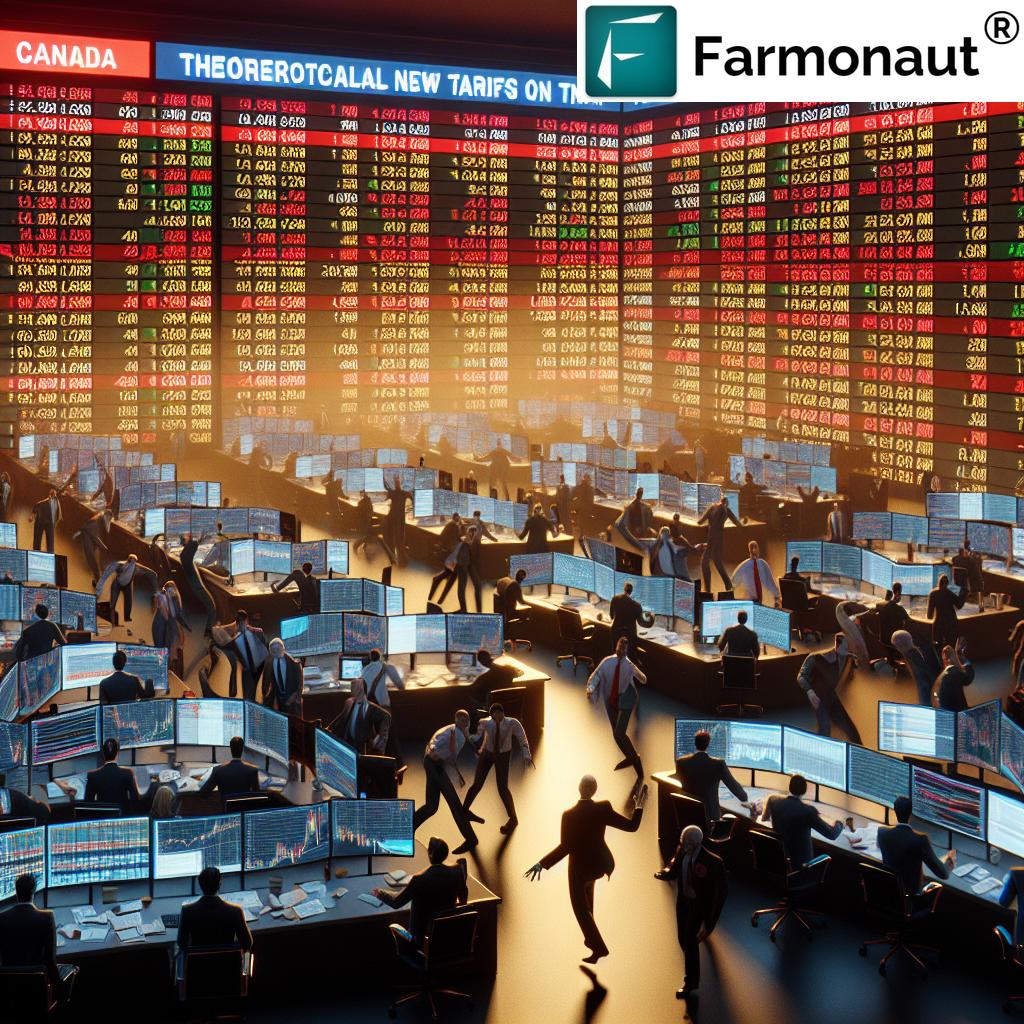
FED’S Bold Move Stuns Wall Street: Trump’S Trade Fight Ignites Fear And Hope
— Wall Street took a wild ride after the FEDERAL RESERVE made its latest move and President Trump doubled down on tariffs. Investors were left uneasy. Goldman Sachs warned the S&P 500 could drop even more if trade fights get worse. UBS also lowered its forecast, showing growing worry about where things are headed.
The S&P 500’s longest winning streak in twenty years came to an end as traders feared new tariffs could hurt economic growth and profits. Some industries, like media and film, are especially nervous about possible tariffs on foreign movies, which has sparked debate over American jobs and creative freedom.
Treasury Secretary Scott Bessent tried to calm everyone down by saying Trump’s policies — tariffs, tax cuts, and cutting red tape — are meant to help America in the long run, even if things feel shaky now. The White House says these steps will make U.S. businesses stronger against unfair competition from other countries.
As markets react to these changes, people are split on whether tough trade rules will help or hurt in the end. Many conservatives believe Trump is finally standing up for American workers who have been ignored for too long by global deals that put them last.;
GOLDMAN SACHS Sounds Alarm: S&P 500 Faces Shock From Trump-ERA Trade Fight
— Goldman Sachs is warning that the recent jump in the S&P 500 may not last. The bank says new trade tensions under President Trump and signs of a weaker economy are big risks for investors.
Trump’s “Liberation Day” announcement has stirred up talk about more U.S.-China tariffs. Goldman Sachs questions if the market can keep rising if these trade fights heat up again.
TD Cowen now says there’s a 70% chance that Chinese stocks could be kicked off U.S. exchanges, thanks to ongoing pressure from Trump’s team. This adds even more worry for investors as trade rules keep changing fast.
These warnings show how quickly things can shift on Wall Street when leaders make bold moves and economic data sends mixed signals. Investors are watching closely to see if tariffs will cause real trouble — or if relief is on the way soon.
TRUMP’S Auto Import Tarifs Spark Fears And Rattle Markets
— Swiss bank UBS has cut its S&P 500 forecast for the end of 2025 from 6,600 to 6,400 points. This comes after President Trump announced new 25% tariffs on imported cars. Many worry these tariffs could start a bigger global trade fight. Still, UBS’s Mark Haefele says there is “meaningful upside” for U.S. stocks this year.
The new tariffs have shaken investors in the U.S., Asia-Pacific, and Europe. President Trump stands firm on his decision. He said he “couldn’t care less” if automakers raise prices and believes Americans will buy more cars made at home.
Markets worldwide are reacting fast to the news. The MSCI world stock index fell by 4.5% in March — the worst drop since September 2022. JPMorgan’s Bruce Kasman now says there is a 40% chance of a recession.
Investors face more risk as these bold trade moves take effect under Trump’s America-first plan. Wall Street is watching closely to see how this will impact jobs and growth in the months ahead.
US-CHINA IMPORT Tariffs Spark Fear and Chaos for Businesses
— A new 50% tariff on Chinese goods like smartphones and batteries will slam American businesses starting April 2025. This is the latest move in a trade fight that began with President Trump’s tough stance on China, which included a massive 145% tariff. Now, companies from small shops in Vermont to big airlines like Delta warn of higher prices and supply chain headaches.
Goldman Sachs CEO David Solomon says business leaders would prefer lower tariffs, but many understand the need to protect U.S. interests. The European Union has blasted these tariffs as harmful taxes that could shake up the global economy.
Small businesses are struggling too. Some local shops using American-made products may not feel much pain, but many others report shrinking profits and less hope for growth, according to the National Federation of Independent Business.
Stock markets have dropped as worries grow over what comes next. Export-heavy countries like Germany are also feeling pressure as U.S. trade policies send shockwaves around the world. This story is still unfolding as businesses watch for more changes ahead.

TRUMP’S “Liberation DAY” Shocks Markets: Wall Street Reels as Tariffs Spark Global Showdown
— President Trump’s “Liberation Day” tariffs have rocked the markets. The Dow dropped more than 2,000 points on some days. The S&P 500 and Nasdaq both fell into bear market territory. These tariffs, reaching up to 125% for some countries, are the highest seen in a hundred years. China, the EU, and Japan are feeling the pain most. China hit back with its own tariffs on American goods. Japan’s finance minister warned of global trouble ahead. Still, US officials say they’re hopeful about future trade talks. Big companies are taking hits too. CarMax shares sank after weak earnings reports. Nvidia tumbled more than 20% from its high point this year. UnitedHealth lowered its profit forecast because Medicare costs keep rising. Experts think this wild ride will last until trade fights settle down. Some industries are holding up better than others under pressure. The Federal Reserve might cut rates three times this year if things get worse — some warn a financial crisis could happen if tariff chaos continues much longer.
TRUMP’S Trade WAR: A Global Financial Nightmare?
— The Bank of England warns of a looming global financial crisis due to Donald Trump’s trade war. The Financial Policy Committee (FPC) pointed out risks from new global tariffs introduced on April 9. These tariffs have increased uncertainty in world markets, possibly leading to debt spirals for governments.
The UK, with its open economy and large financial sector, is especially vulnerable to shocks from international trade conflicts. Rachel Reeves, the Chancellor, confirmed ongoing talks with the Bank’s Governor to watch market developments amid these tensions.
Trump’s threats of more tariffs on China could escalate the conflict and harm international cooperation. Such actions may worsen financial conditions worldwide, according to the FPC’s warning note.
Despite these worries, analysts believe that the well-capitalized UK banking system might offer some protection against economic turmoil. However, watching trade war developments remains crucial as they could greatly impact both local and global markets.

US TRADE Policies Cause GLOBAL Economic Jitters
— Recent U.S. tariffs have left Canadian small businesses facing economic challenges, leading to job cuts and price hikes. The Canadian Federation of Independent Business reports nine percent of owners have issued layoff notices due to these tariffs. Businesses are raising prices by an average of 3.7 percent this month as they struggle with rising costs and decreased consumer spending.
In Alberta, business leaders feel cautiously optimistic after avoiding new U.S.-imposed tariffs that threatened the energy sector. Adam Legge from the Business Council of Alberta feels relieved but remains wary about future trade developments under current policies.
President Trump’s tariff strategy aims to equalize import taxes with those imposed by other nations, sparking debate over its economic impact on sectors like agriculture and manufacturing. Meanwhile, Japan’s Prime Minister Shigeru Ishiba expressed disappointment over Japan’s exclusion from tariff exemptions and plans support for affected industries domestically.
These developments highlight growing concerns about global economic instability driven by U.S. trade policies, particularly affecting small businesses worldwide as they navigate uncertain financial landscapes.

TRUMP’S Trade Policy Shocks: US Stocks Plunge in Market Chaos
— The EURO has surged to a six-month high as investors react to the latest U.S. tariff announcements. Meanwhile, the Australian dollar has taken a hit, reflecting global market volatility. These currency shifts highlight ongoing economic uncertainties fueled by international trade tensions.
U.S. stock futures have plummeted after China’s retaliatory tariffs on American goods, marking another phase in the global trade conflict. The Dow Jones dropped 1,679 points, causing widespread concern among investors and financial strategists who urge calm and strategic planning during these turbulent times.
Bitcoin ETFs saw nearly $100 million in net outflows as markets reacted sharply to tariff news from the Trump administration. This exodus underscores investor anxiety and uncertainty about future economic conditions amid escalating trade disputes with China.
Goldman Sachs has revised its oil price forecasts downward due to fears of a potential recession and increased supply from OPEC+. Gold prices have steadied after an initial selloff triggered by aggressive U.S. tariff policies, indicating cautious optimism among investors seeking safe-haven assets in uncertain times.

CHINA’S 34% Tariff Shock: How It Could Hurt American Wallets
— China has slapped a 34% tariff on U.S. goods, ramping up trade tensions. This follows recent U.S. tariffs on Chinese imports, sparking fears of a trade war.
Experts warn these tariffs might harm American businesses and consumers by raising prices and slowing economic growth. Washington is concerned about undoing post-pandemic recovery efforts.
The Trump administration is considering countermeasures and may seek international support to tackle China’s trade practices. This situation has ignited debates over the future of U.S.-China relations and global trade dynamics.
Financial markets reacted quickly, with stocks dropping due to fears that escalating conflicts could further destabilize the global economy. These developments could significantly affect both U.S.-China relations and international markets.

STOCK MARKET Chaos: US Faces Economic Fears as Tariffs Loom
— U.S. stocks took a nosedive today as President Donald Trump’s “Liberation Day” approaches, bringing potential tariffs on Canadian steel and aluminum imports. Analysts warn these tariffs could trigger a market downturn and increase recession risks. Wolfe Research has already revised U.S. growth estimates for 2025 down to 1.6%.
Retail giant Kohl’s experienced its worst trading day since 1992, with stocks tumbling by 26% after issuing disappointing guidance for the year. Investor anxiety is also heightened by an upcoming House vote on a stopgap funding bill, adding to market volatility.
The Dow Jones Industrial Average has fallen 8.3% from its peak, raising concerns about the tech sector’s performance compared to the S&P 500. Investors are bracing for further shifts as policy decisions unfold in the coming days amid fears of reduced earnings across sectors due to new tariffs and declining consumer confidence.

TRUMP’S Bold Move: How NEW Tariffs Rattle the Stock Market
— U.S. stocks fell sharply as President Donald Trump’s tariffs on Canada and Mexico took effect, sparking economic fears. Investors worry about the potential impact amid existing uncertainties. Analysts warn of a possible recession, urging caution in market activities.
The S&P 500 and Nasdaq composite saw major drops, hitting technology stocks hard. Companies across sectors are revising forecasts due to these new trade policies. Experts suggest these tariffs could worsen inflation and reduce consumer spending soon.
These tariffs are part of Trump’s broader trade agenda to boost U.S. manufacturing but risk retaliatory actions that may harm American businesses and consumers. The market remains bearish as analysts closely watch for policy fallout effects.

TRUMP’S Trade WAR: Global Markets in Chaos
— President Donald TRUMP’s recent tariffs have sparked swift retaliation from Mexico, Canada, and China. These actions have thrown financial markets into chaos, raising fears of inflation and uncertainty for businesses.
Imports from Canada and Mexico now face a 25% tariff, with Canadian energy products specifically taxed at 10%. This move has heightened global trade tensions significantly.
China responded quickly to the U.S. tariffs, escalating an already heated international dispute. A Chinese spokesperson warned that these measures could harm the U.S. economy by disrupting beneficial trade relations.
Analysts worry about potential backlash against U.S. exports as these trade disputes unfold. The situation is seen as a risky maneuver that might reshape global trade dynamics and impact both consumers and businesses in the long run.

TRUMP’S Trade WAR Ignites Gold Rush And Market Turmoil
— Gold prices have hit a record high as investors flock to safe assets amid President Donald Trump’s new tariffs. These measures target imports from Canada, China, and Mexico, sparking worries about inflation and economic growth. JP Morgan is optimistic about gold, urging investors to buy during this dip.
Wall Street braces for losses due to fears of an escalating trade war from Trump’s tariff actions. The 25% tariffs on Canada and Mexico and 10% on China may cause “short-term” pain for Americans, according to Trump. Global markets watch cautiously as these policies unfold.
Oil prices are climbing in response to the tariffs, while metal and agricultural commodities face pressure downward. The financial landscape is shifting with markets adjusting to a potential prolonged trade conflict led by the U.S., causing the dollar to gain strength amid global trade uncertainty.

GOLD PRICES Soar: Trump’s Trade Moves Spark Investor Panic
— Gold prices soared to a record $2,800 on Friday as investors sought safety amid tariff threats from President Trump. His remarks have sparked concerns about potential economic impacts.
The uncertainty surrounding tariffs has driven demand for gold, a traditional safe-haven asset. Investors fear that any major trade moves could weaken the U.S. dollar, making gold more attractive.
Analysts also note that increased buying by jewelers and retailers ahead of the marriage season contributed to the price surge. These factors combined have led to unprecedented highs in gold prices.
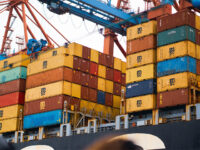
CHINA’S Record Trade Surplus Sparks Global Alarm
— In December 2024, CHINA reached a record trade surplus of $104.8 billion. This was due to a surge in exports before President-elect Donald Trump could impose tariffs. The New York Times reported that China’s export boom is causing friction with many trade partners, not just the United States. Several nations are now erecting tariff barriers against Chinese products to protect their markets.
China’s export success has been an economic boon, creating millions of jobs in sectors like manufacturing and engineering. The nation dominates industries such as solar panels and is becoming self-sufficient in areas like commercial jets. However, China still struggles with energy independence outside solar power.
The automobile industry showcases China’s manufacturing strength, evolving from a major importer to the world’s largest car exporter in two decades. Critics argue that China’s overcapacity and government subsidies distort global auto markets by flooding them with cheap vehicles amid declining local demand.
While record exports might seem beneficial for China, they could lead to financial strain if companies face bankruptcy due to low prices and excess inventory as tariff barriers persist globally. The auto industry may have peaked, facing strong resistance from politically influential foreign markets protecting their own electric vehicle sectors through tariffs and subsidies.

— US dockworkers threaten STRIKE over automation concerns Unions representing thousands of dockworkers warn that increased automation could displace jobs, raising fears of cargo shipment disruptions and potential inflation impacts

— US Dockworkers Threaten Strike Over Automation Concerns Union leaders warn that increasing automation could lead to job losses, risking major disruptions in shipping and supply chains nationwide

ECONOMISTS SOUND Alarm: 2025 Financial Crisis Looms
— Economists are raising alarms about a potential financial crisis in 2025. David Kelly from JPMorgan warns that high stock market valuations pose a significant risk despite strong economic indicators like low layoffs and cooling inflation. Investors should be cautious as these inflated values could lead to a sudden market downturn.
Current economic signs show paychecks growing faster than prices, and stable gas prices offer optimism for Americans. However, the high asset valuations remain a critical concern for analysts. They suggest preparing for increased market volatility throughout 2025, with a crisis potentially emerging early in the year.
These warnings have led to cautious trading, especially in tech stocks that previously drove gains. Traders are balancing concern with optimism, causing fluctuating stock prices in early sessions.
This situation may prompt investors to reassess their portfolios and strategies as they navigate potential shifts due to changing market conditions. The economic concerns highlighted could significantly influence investor behavior and market dynamics moving forward.

— Dow Drops 300 Points as Rate Concerns Weigh on Post-Election Rally The Dow Jones Industrial Average fell 300 points on Friday, stifling momentum from the recent election amid ongoing worries about rising interest rates

— S&P 500 SOARS to NEW RECORD CLOSE The index surged as traders sought to capitalize on the momentum from recent Federal Reserve interest rate cuts

— Federal Reserve Chair Powell Warns Against Prolonged High Rates Impact on Economic Growth: Powell cautions that maintaining high interest rates for an extended period could pose a threat to economic expansion

Video
GLOBAL ELECTIONS Shock: What’s at Stake for Iran, Britain, and France
— Over the next week, voters in countries like Iran, Britain, and France will head to the polls. These elections come at a critical time with global tensions high and public concerns over jobs, climate change, and inflation.
In Iran, Supreme Leader Ayatollah Ali Khamenei seeks a successor for President Ebrahim Raisi following his recent death. Candidates include hard-liners Saeed Jalili and Mohammad Bagher Qalibaf as well as reformist Masoud Pezeshkian.
These elections could significantly impact global politics amid ongoing wars in Europe, the Middle East, and Africa. The outcomes may reorient international relations during this period of mutual suspicion among major powers.

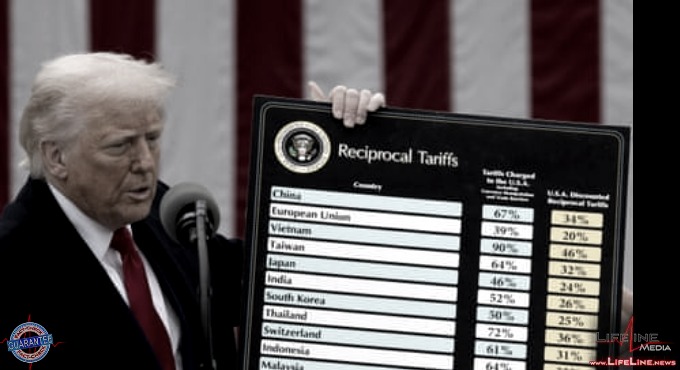
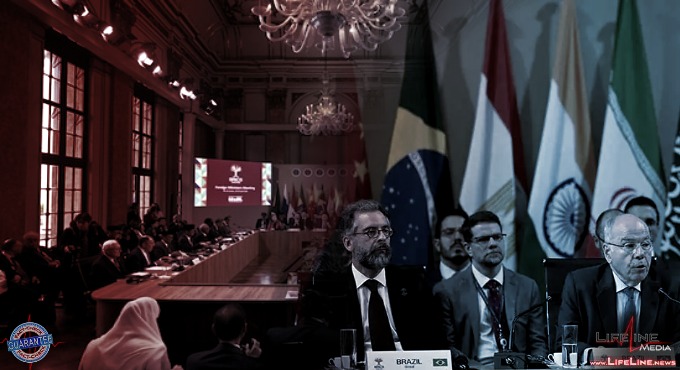

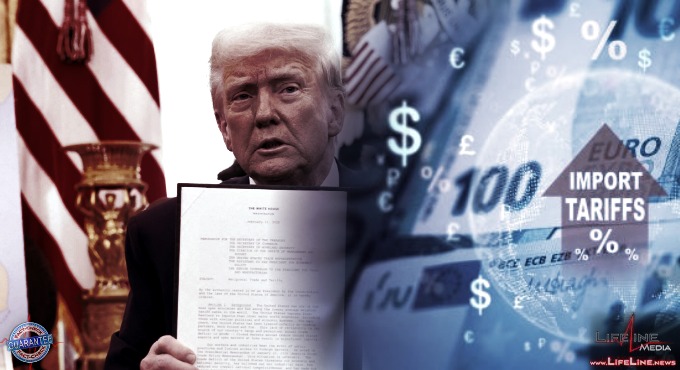
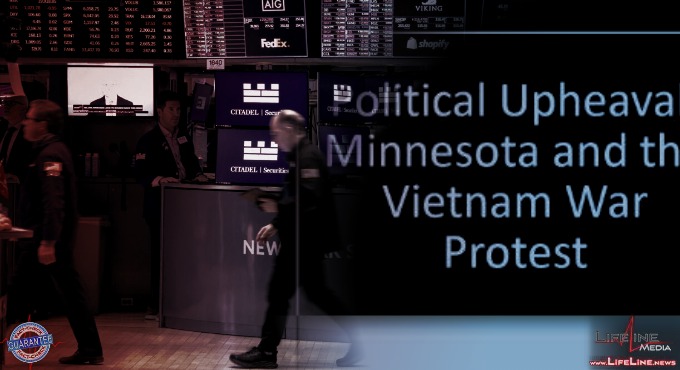
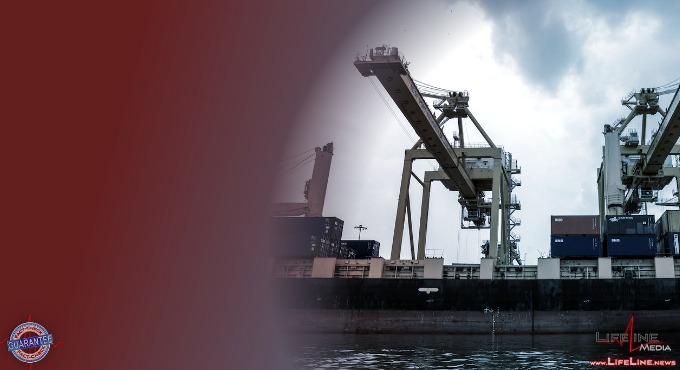
Social Chatter
What the World is SayingThe greatest risks to American exceptionalism are our national debt crisis & our educational achievement crisis. Both were self-inflicted & both are still solvable (for now). But it’s going...
. . .Federal deficits vs Florida surpluses Florida’s surpluses have been at record levels in recent years even as the state has enacted record tax cuts and dedicated billions to accelerating infrastru...
. . .Federal deficits vs Florida surpluses Florida’s surpluses have been at record levels in recent years even as the state has enacted record tax cuts and dedicated billions to accelerating infrastru...
. . .The national debt & our failing educational system together represent existential threats to American greatness. The last 4 years left a major mess & turning it around won’t be easy.
. . .Foreigners are selling US Treasuries. The trade war must end. And Soon. The Yen, Euro and Canadian Dollar growing in value interest rates for our debt is going higher. This is not the goal....
. . .